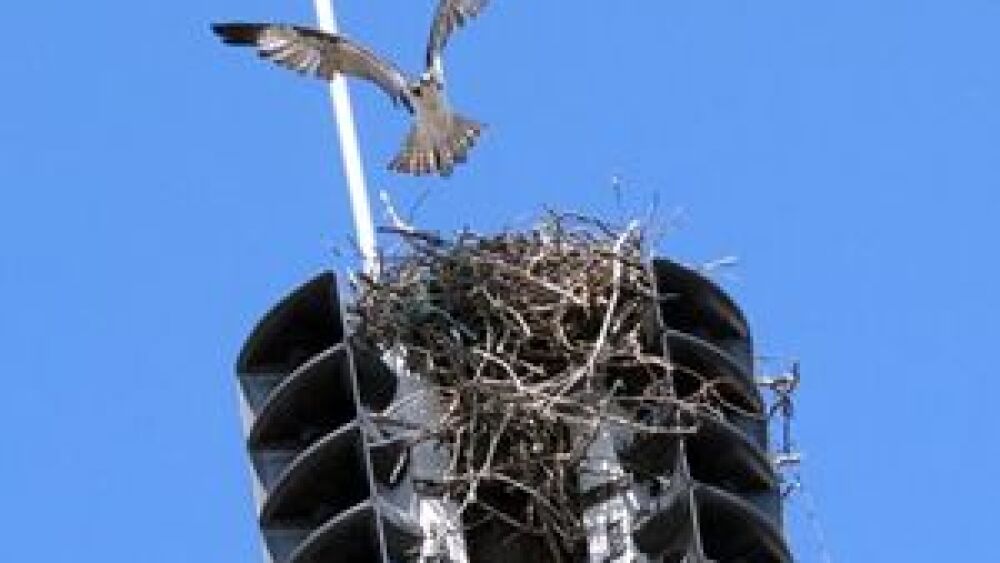The Associated Press
SPRING LAKE, N.J. — A pair of ospreys has quieted a fire alarm in one New Jersey shore town.
The raptors have built a nest inside the fire siren at Spring Lake. By law, the nest can’t be disturbed. Ospreys are listed as a threatened species in New Jersey during their breeding season.
So the siren has been turned off for the spring and summer, while firefighters and paramedics rely on pagers and cellphones to alert them of emergencies.
Borough Administrator Bryan Dempsey said a police officer notified him in March that an osprey appeared to be building a nest on the siren, which is mounted on a pole about 100 feet off the ground behind the police, fire and first aid squad headquarters.
“We had to shut off the siren for the rest of the season,” he said.
First responders in the resort about 60 miles north of Atlantic City say so far things have been working smoothly.
Spring Lake officials say they may need to create an alternate place nearby for the birds to nest next year, as they tend to return to the same spot.
“The issue is, once they pick a spot, they keep coming back to that spot,” he said. “Even if we got rid of the nest at the end of the season, we’d have to build a new spot for them to nest next season. So we’ll do whatever we have to do to make sure they have a habitat to live in.”
The nest cannot be disturbed at least until Sept. 1.
Officials say they believe several chicks have hatched, but none was visible from the ground on Tuesday.
There are nearly 550 pairs of ospreys in New Jersey, based on a 2013 state survey. They usually mate for life, and incubate the eggs for about 5 weeks.
The young birds leave the nest about 8 to 10 weeks after hatching. The male and female head south for the winter, traveling to separate locations as far as South America, yet return to the same area if not the same nest the following year.
They prefer to nest on high ground near water, since fish account for 99 percent of their diet. An osprey can see a swimming fish from 100 feet in the air, swoop down and grab it with their talons.












